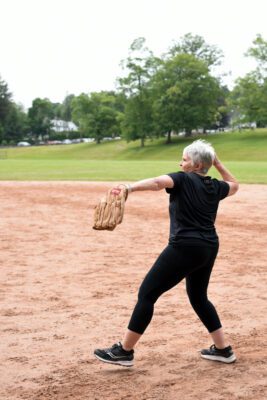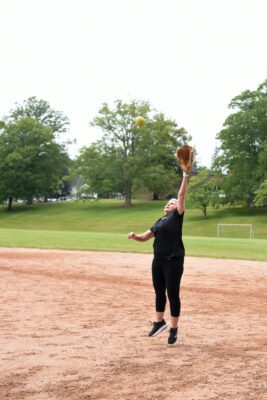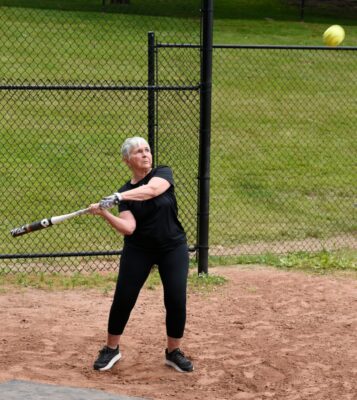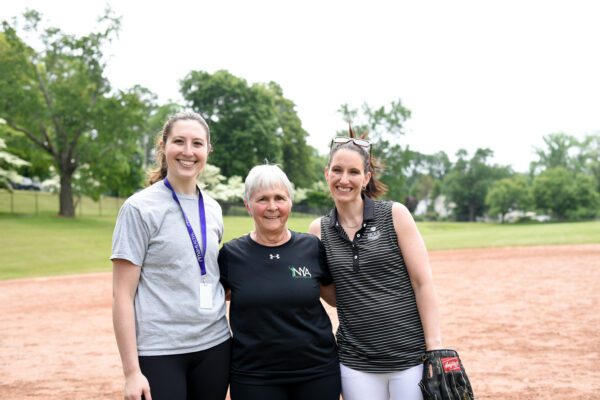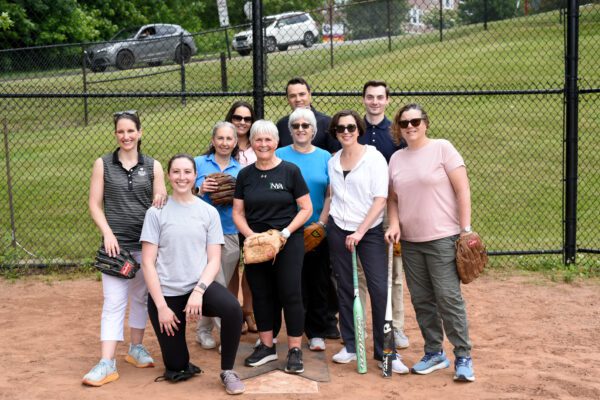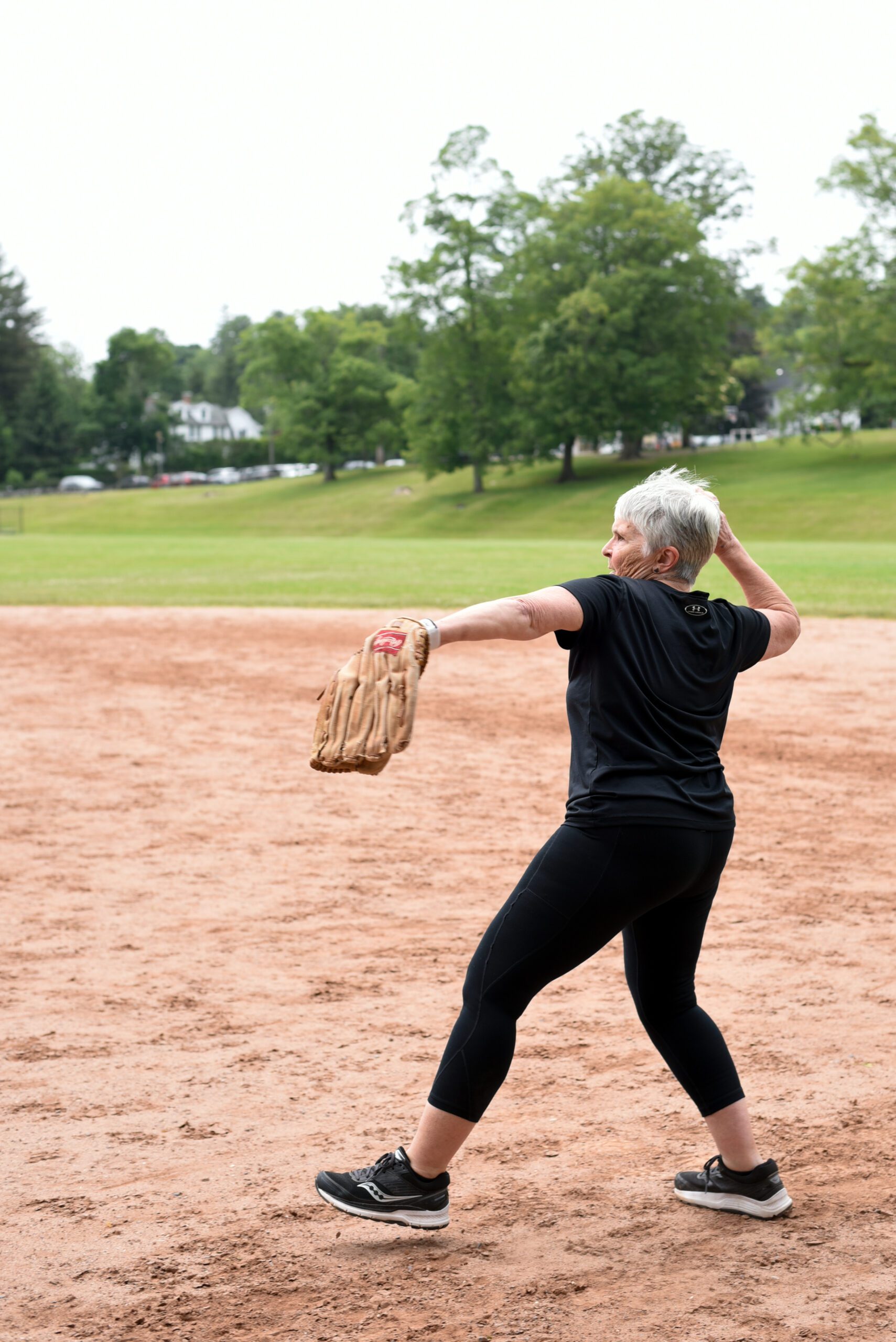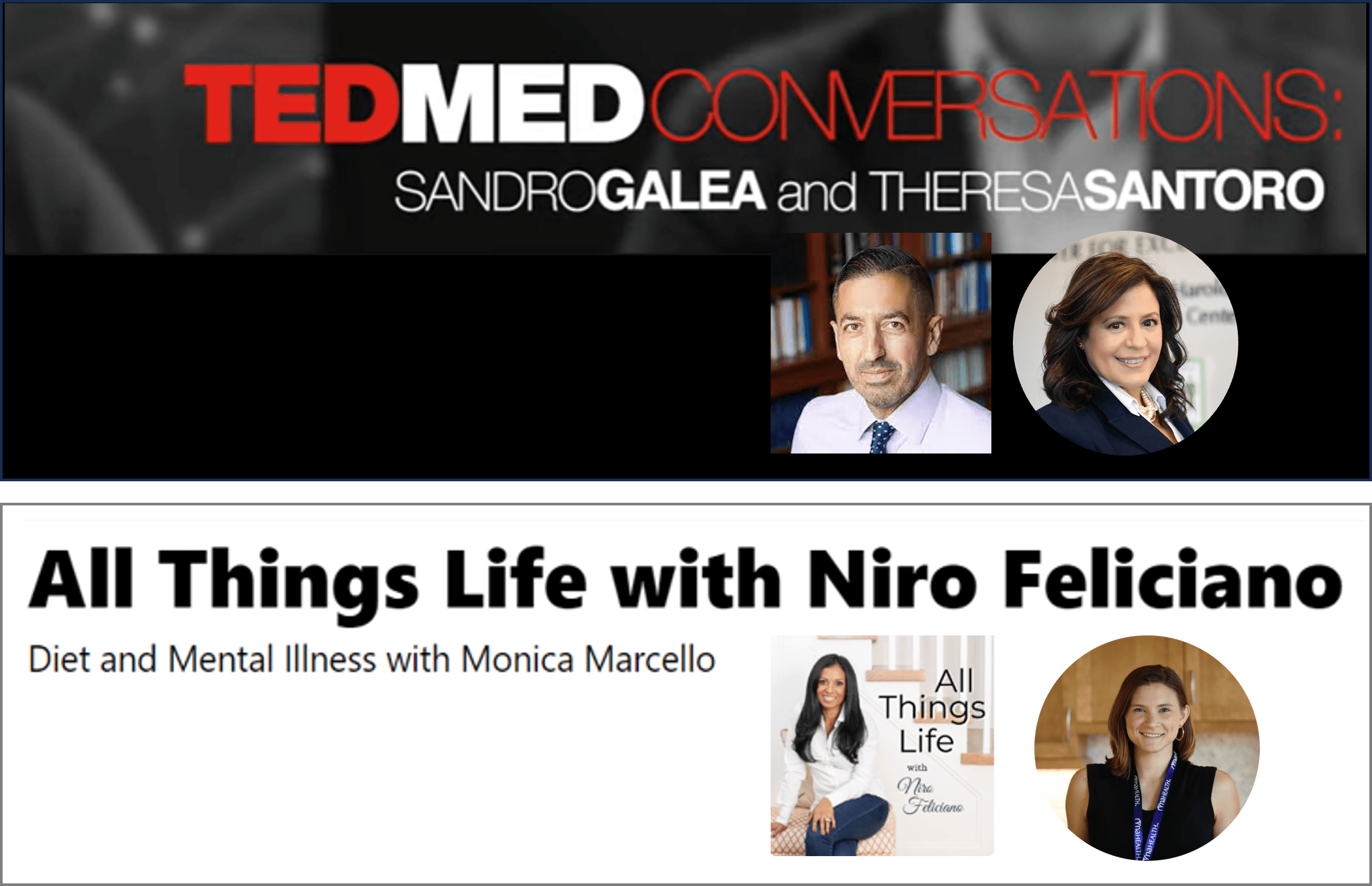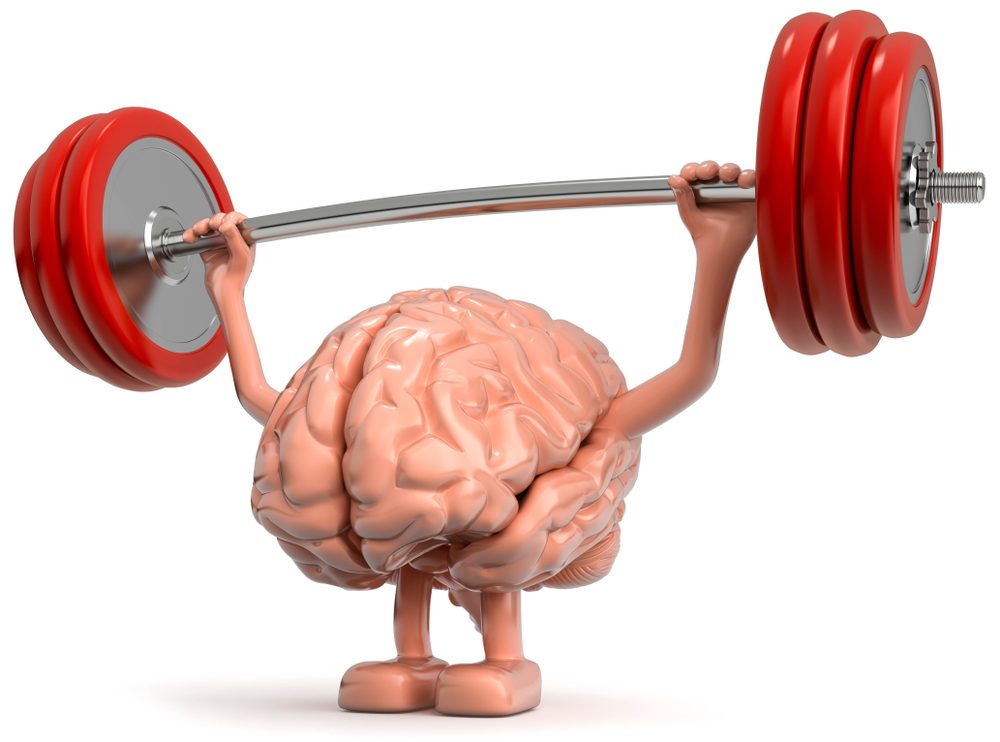Nothing seems to stop 74 year old Newtown resident, Jan Brown – not even a Parkinson’s disease diagnosis! With a determined spirit and help from her doctors and the RVNAhealth Parkinson’s Center, Jan is now back to playing national level softball and more! And to celebrate Jan’s completion of RVNAhealth’s LSVT Parkinson’s program, the team decided what better way to celebrate than a surprise game of softball after her final session with RVNAhealth therapists and staff (see photo gallery below). Before the game, we had a chance to catch up with Jan and Parkinson’s Center staff to learn a little more about Jan and her journey.
About Jan & Her Diagnosis
After searching for a reason for progressing physical symptoms, Jan’s neurologist finally ordered a DaTscan. When her Parkinson’s diagnosis was revealed Jan was prescribed a common Parkinson’s disease medication which made significant improvements to her tremors and function. Her medical team also quickly mentioned, “You should check out the new Parkinson’s Center happening at RVNAhealth.”
Kate Campbell DPT, LSVT BIG, RVNAhealth Parkinson’s Center Program Manager, recalled meeting Jan and evaluating her symptoms and goals. “At the point of diagnosis, the symptoms of her disease had progressed to the point of making simple daily tasks such as getting dressed, washing hair, and putting in contacts difficult,” said Campbell. This sports enthusiast and winner of several National Senior Games in softball and basketball, believed it was time to turn in her sports equipment. But thankfully the active spark in Jan had not fully extinguished and she signed on to participate in RVNAhealth’s LSVT program.
What is LSVT?
LSVT stands for Lee Silverman Voice Treatment. It is a globally recognized therapy program developed in the late 1980s and designed to help individuals with Parkinson’s disease improve their vocal and physical movement abilities. While the acronym LSVT refers to treatment for the effects of diminished or difficult voice/speaking skills, it also refers to an exercise protocol dedicated to improving a person’s physical movements commonly becoming smaller and more tentative as disease progresses. The LSVT programs aim to retrain a patient’s brain so their perception of their speech and movement is BIGGER and more accurate and they become able to speak and move with more amplitude.
RVNAhealth offers LSVT therapy at its Parkinson’s Center in Ridgefield and also in the home. The program is an intensive commitment – 4 weeks, 4 days a week for 1 hour appointments with an LSVT certified therapist – but when done, the results are usually life changing. Graduates of the program will have new habits and exercises to incorporate and continue in their ongoing daily routines. If someone needs a little more ongoing encouragement or prefers a group exercise setting, RVNAhealth also offers ongoing LSVT BIG and LSVT LOUD weekly drop in exercise classes at its Ridgefield office for graduates. “Our goal is to help you live your best life with Parkinson’s. And our new Parkinson’s Center aims to be a lifelong resource for those who need it,” says Campbell.
Jan’s Experience at the RVNAhealth Parkinson’s Center
“I was determined to do what I needed to do to get back to my life. It was a commitment – 4 weeks, 4 days a week, 1 hour each day, plus homework – but with this program, I achieved my goals. I am so grateful!” says Jan. “And I am blown away by how much the RVNAhealth therapists know and have to know about Parkinson’s disease to help me and help other people. Megan [my RVNAhealth Parkinson’s Center physical therapist assistant] listens to all of my questions and she is able to give me the correct answers. Everyone was just great.”
With Jan’s dedication to the LSVT program, its homework, and incorporating new skills and tools into her life to control symptoms, Jan is back to living her life to the fullest – including looking forward to the next softball National Senior Games in Arizona. And we didn’t mention her love of pickleball…or that she’s an instructor…or that she can beat her own grandchildren at the game!
What else can Jan Brown do with Parkinson’s disease? We’re betting on A LOT more! Way to go Jan – we are so proud of you!
For more information about the RVNAhealth Parkinson’s Center, visit our website or call 203.438.5555 ext 1082 or email PCInfo@rvnahealth.org.
